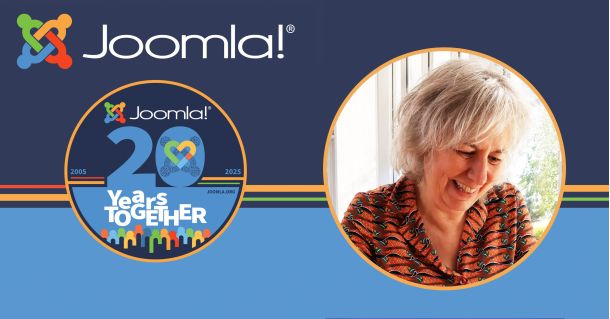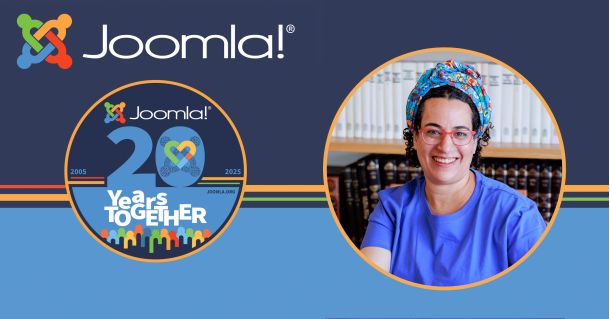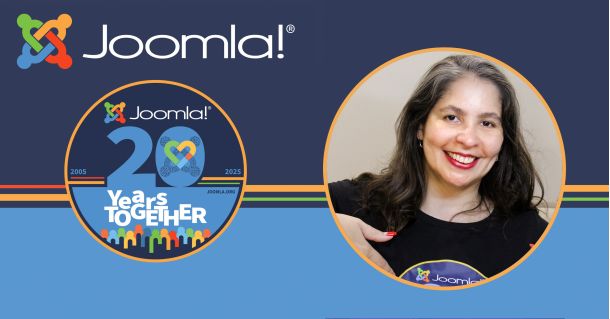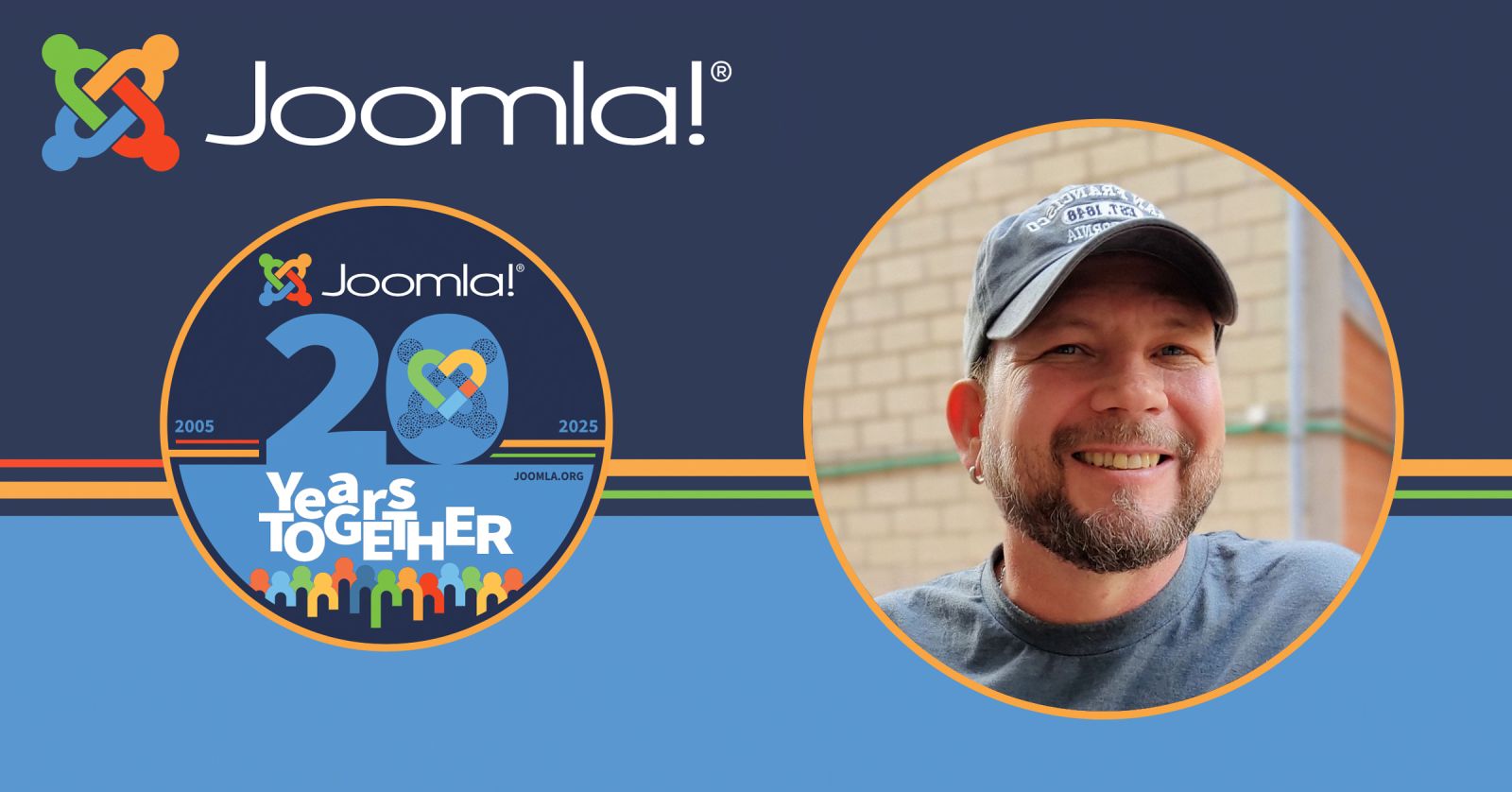
Joomla in faces. Andrés Restrepo (localisator in Spanish)
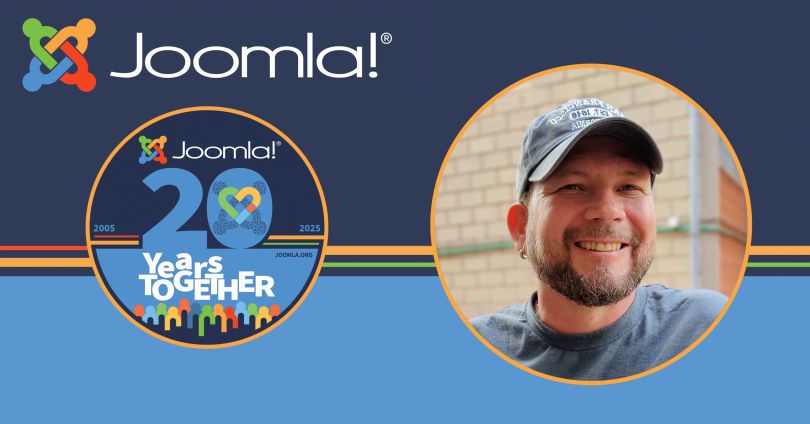
- Published: 18 November 2025
- Last modified: 07 January 2026



Today, we're reaching into the vibrant world of Colombia to speak with Andrés Restrepo, a dedicated Joomla volunteer who has been with the project for its entire 20-year journey. Currently, he focuses on translating extensions into Spanish, building websites, and helping community users. Let's explore his Joomla story.
1. To begin with, could you tell us a little about yourself?
First of all, a very special greeting to you and the NorrNext team and to all the people who make the existence and continuity of the Joomla! Project possible. I’m fan number one.
Answering your questions, let me tell you a bit about myself:
I was born and live in Medellín, Colombia, “The City of Eternal Spring.” I’m a 1969 model! I studied electronic engineering and have worked in the field of telecommunications, basic telephony, and cellular telephony.
As an electronic engineer I have programmed in several languages, starting with the low- level machine language Assembler, Cobol, Fortran, Turbo Pascal and Visual Basic, concepts and basic programming in HTML5, PHP, CSS3, Java Script and now I make my first routines with Python, which I use for the analysis and control of language strings in .ini files.
I describe myself as a web designer and layout designer, and so far, I've worked for the Colombian market.
As for translations, it's something I've been doing for a while, only for my websites. Now I've put more enthusiasm into the matter. I've met formidable developers and great people.
I live in the countryside, I like animals, the pure morning air and feeling that nature is part of me.
I am happily married to Clemencia, who has been the engine of my life during these last 15 years (I’ve had 3 marriages, “A gentleman repeats” they say here in my land). I have a 25-year-old son from my first marriage, already grown up.
I have a very good sense of humor, which makes me see life from other perspectives!
2. What first brought you to the Joomla platform?
In the mid-90s, while working for a telecommunications company, I made my first intranet. I fondly remember the first web editor I used—Microsoft FrontPage. Then I created my first, very simple commercial websites with Adobe Dreamweaver. After that, I moved on to Mambo and finally to Joomla! 1.0, and from there, it all began!
I was looking for agility in design and loved the use of templates. I found uniformity and consistency and quickly realized the great potential of Joomla!. In 2008, I made my first website with Joomla! 1.0; it was a gastronomy portal for SENA (Servicio Nacional de Aprendizaje, for its initials in Spanish), a government entity with technical, technological, and complementary programs.
The portal was a complete success; it even worked with Community Builder and the Kunena forum!
3. Have you worked with other Content Management Systems besides Joomla?
As I told you earlier, I progressed through using all the tools of the moment until I got to Joomla! today, this CMS is my favorite, although due to work issues, I have had to use WordPress and PrestaShop.

The client always has their preferences — either because they have researched or someone has recommended one CMS or another—but in general, I always recommend that they use the Joomla! CMS.
Andrés
4. Do you contribute to the Joomla community?
Of course, I contribute, and I like to do it!
I am in several Facebook groups and Joomla! Forums where there are members of all levels, from professionals to newcomers to Joomla! I collaborate with those who have less
experience, and I also ask my questions to the more expert ones.
On the subject of translations, I have contacted several developers to collaborate with the translation of their extensions into Spanish and on several occasions I do it as a tester. I make suggestions for improvements and in general I like to review that the entire environment of an extension works properly.
All contributions always result in a win-win situation!
5. With Colombia's active development, what is the state of the e-commerce market in your country and the region? Is online payment widely adopted, and which payment systems are the most popular?
E-commerce is a reality for all countries in the world. In the specific case of Colombia, let me tell you that it is one of the largest e-commerce markets in the region, occupying third place, and it is projected with great growth for the coming years. A curious fact is that Colombia is the country with the largest webcam industry in the world, all those subscriptions are paid through e-commerce, with payments through the PSE gateway being the most used in the e-commerce market in general. There are also others widely used payment gateways such as Mercado Pago and PayU. I have worked with the Mercado Pago payment plugin for HikaShop.
6. How significant are the differences in written standards between the Spanish of Spain, Colombia, and the broader South American region? Would installing the es-ES (European Spanish) language pack be sufficient for all users, or are there important regional nuances that require localized translations?
Spanish is a universal language, the second most used and spoken in the world after
English. It is a very rich language in vocabulary, verbs, and grammatical tenses which
makes it very versatile and adaptable to any region. Spanish refers to the language
spoken in Spain and America in general. Let’s talk about the particular case of Spanish
from Spain [es-ES]. Spain is a country with many variants of the Spanish language
depending on the region of the country you are in, for example there is Castilian,
Andalusian, Aragonese, Canarian, etc. Officially, 8 main variants or dialects are recognized, and from there many sub-dialects are derived, this is really is crazy.
Fortunately, we have the RAE (Real Academia Española, for its initials in Spanish) which is dedicated to studying, regulating and unifying the Spanish language in the Spanish-speaking world, and whose main objective is to ensure that the language does not lose its unity despite the changing needs of its speakers.
In short, we can use the [es-ES] tag for all Spanish-speaking countries, the key is to use
universal words and terms in the translations. Can you imagine a translation for each
country? es-CO, es-AR, es-MX, es-CL…
Too complicated! That's why we only use [es-ES] with unified or universal Spanish.
7. What motivates you most in your work?

"Joomla! is not just a job, it is a hobby that makes me very happy"
Andrés
Let me clarify one thing: my work with Joomla! is not just a job — it is a hobby that makes me very happy, and as such, I fully enjoy doing and learning things with Joomla!
Another thing that motivates me a lot is being able to share experiences with Joomla! users from all over the world. I have had the opportunity to establish professional relationships with developers from Greece, Germany, Holland, the USA, Canada, France, and of course, Latvia.
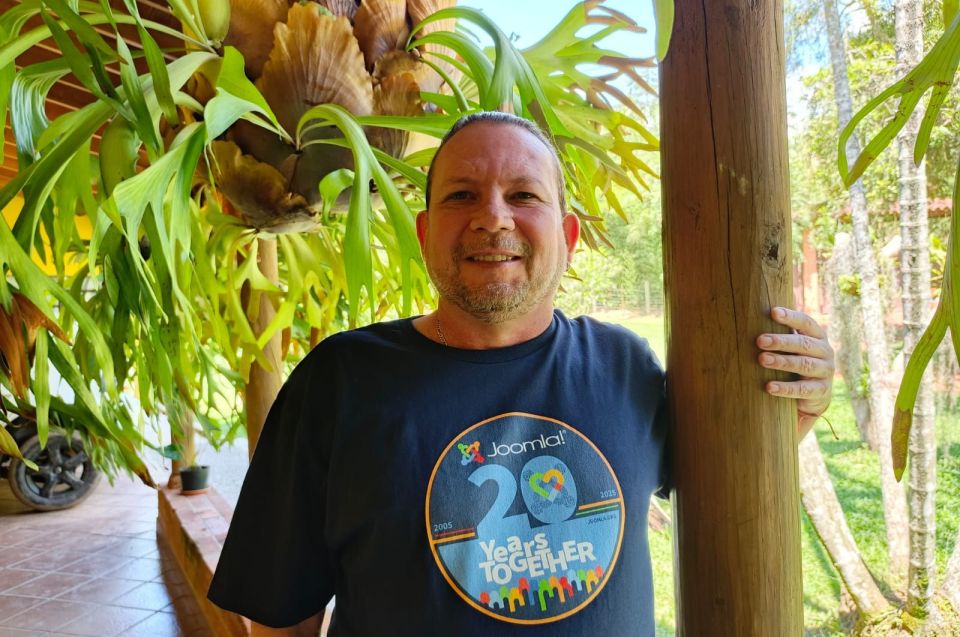
Andrés Restrepo
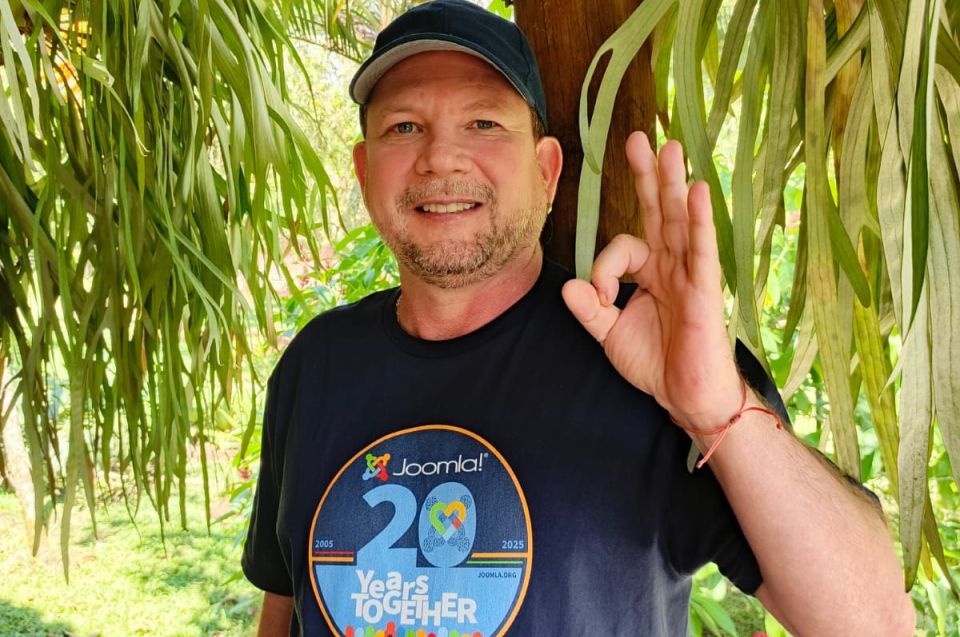
Andrés Restrepo
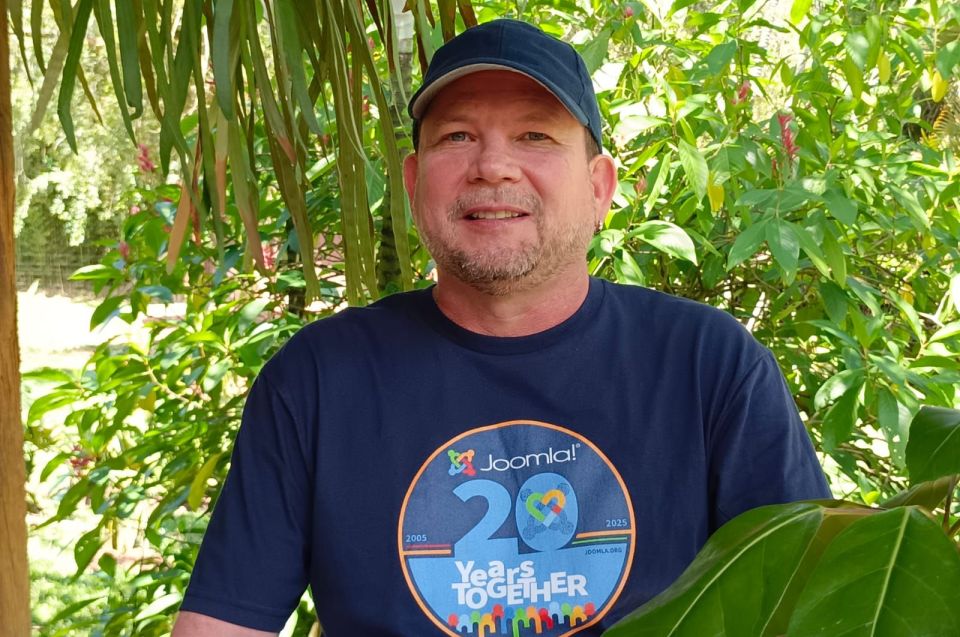
Andrés Restrepo
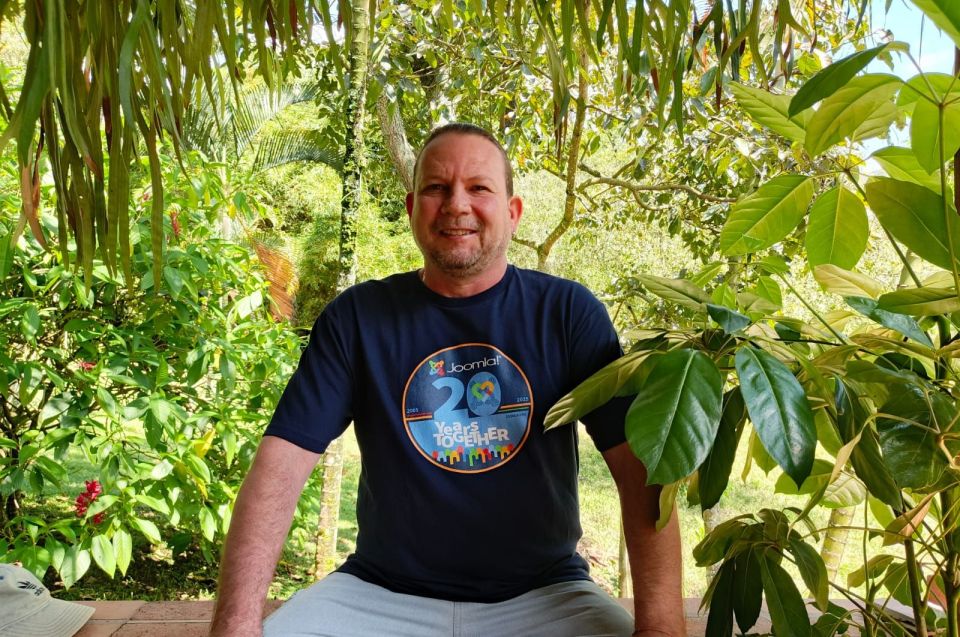
Andrés Restrepo

Andrés enjoying the life
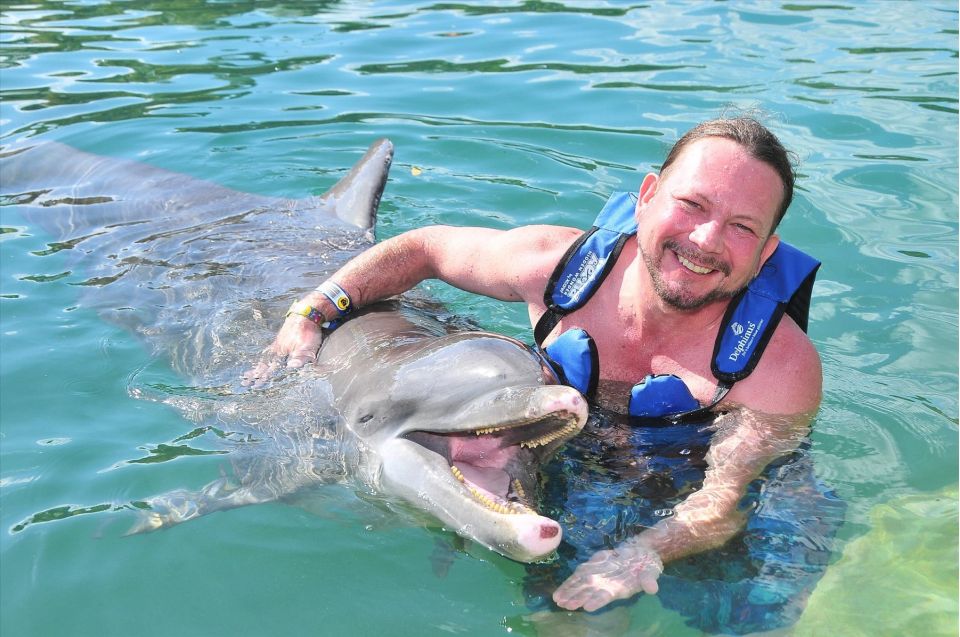
The dolphin Kukulkan and Andrés
8. What are some of the biggest challenges you've encountered while working with Joomla, and how did you resolve them?
In general, every day is a challenge, giving me new opportunities to learn something new.
Specifically, it's about maintaining consistent and professional Spanish [es-ES] translations
in the third-party extensions I collaborate with.
I've encountered long .ini files, duplicate strings, key changes. Generally, each developer creates their .ini files differently, either by functional blocks or by simply adding the changes to each version at the end.
To overcome these types of problems, I've created my own Python scripts to remove
duplicates, compare source/destination files (en-GB/es-ES), and automate review tasks.
Then comes the human review part. As I explained earlier, I strive to use unified or universal terminologies that fully describe the strings with the terms specific to each extension.
9. Are you open to collaborating with international clients and colleagues?
Of course I am willing! The world is very big and there are thousands of opportunities to grow both professionally and personally. In fact, I have been doing it, little by little I am getting to know more people from different countries. That gives me great satisfaction.
10. Joomla's 20th Anniversary: Joomla is celebrating its 20th anniversary this year. What are your reflections on this milestone, and what would you like to say to the community?
When I think about the fact that it's been 20 years since the birth of Joomla!, which I witnessed (😅😅😅), it fills me with pride to know that there are people all over the world willing to do their part to make Joomla the best CMS.
It's been 20 years of struggle, successes, and failures — like everything in life. There was a time when I thought Joomla was going to end; very stormy times in which the competition, WordPress, gained great momentum and displaced Joomla to second place in popularity. We were the first!
My message to the Joomla! community is to not let our guard down and to continue working with love and enthusiasm so that Joomla! remains relevant for another 20 years.
Happy Anniversary, Joomlers!
I want to thank you and your entire NorrNext team for this great opportunity.
Credentials of Andrés
Meet the authors

Andrés

Eugene

Kukulkan
I'm a kids' water instructor at a swimming pool. I love people, fish, and I'm a proud father of three dolphins!

